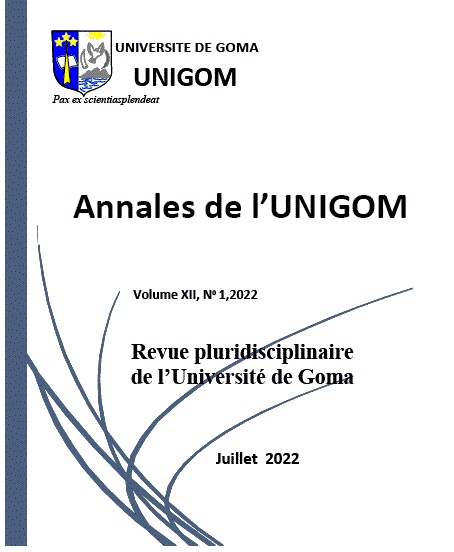Le phénomène « écrivain fantôme » dans le monde estudiantin congolais. réalité ou mythe
Contenu principal de l'article
Résumé
Résumé
Cet article est une réponse à un grand problème sociétal qui jette un discrédit sur l’éducation nationale, car recourir à des tiers pour écrire un travail de fin de cycle à la place d’un étudiant finaliste du cycle est une faute lourde pour un scientifique. Il est de notre devoir et responsabilité philosophique de réfléchir objectivement sur cette réalité pernicieuse qui avilit aussi bien intellectuellement que scientifiquement notre société. Quand un peuple refuse d’échafauder des plans pour son propre avenir en donnant un sens à sa sagesse, il s’exclue de la définition de son destin. Ainsi, Achille Mbembe dit : " Les universités africaines ne semblent pas avoir pu devenir de véritables foyers d’élaboration, de critique et de diffusion de nouvelles
formes de pensée. " Rappelons qu’avoir un diplôme et être diplômé sont deux réalités diamétralement opposées. Là se pose évidemment le dualisme de l’être et l’avoir, comme le souligne Gabriel Marcel.2 Ainsi, la formation intellectuelle et scientifique demeure un passage obligé de la renaissance populaire et de la réhabilitation holistique de tout citoyen. On n’a donc pas raison de s’interroger sur la médiocrité observée au sein de notre société lorsqu’un citoyen n’a pas été bien formé. L’étudiant étant un chercheur, il doit chercher à se tailler un chemin comme le rappelle le Professeur Nkombe Oleko.
Abstract
This article is a response to a major societal problem which throws a discredit on national education because resorting to your third parties that is to write an end-of-cycle work in place of a finalist student of the cycle is a big mistake for a scientific person. It is for our philosophical duty and responsability to think obectively on this pernicious reality which debases intellectually and scientifically on your society. When people refuse to make plans for their future by giving meaning to their wisdom, they exclude themselves from the definition of their destiny. Therefore, Achille Mbembe said : « African societies do not seem to have been able to become true centres for the elaboration, criticism and out broadcasting of new forms of thought ». Remember that having a degree and being graduate are two different realities. There obviously arises the dualism of being trained and having skills under the lines of Gabriel Marcel. Thus, intellectual and scientific training remain an obligatory step towards popular recognition and the holistic rehabilitation of every citizen. Therefore, there is no reason to wonder about the mediocrity observed within our society when a citizen was not well trained. A student being a researcher, should find his own way as Professor Kombe Oleko says.
